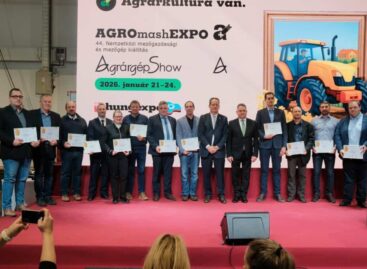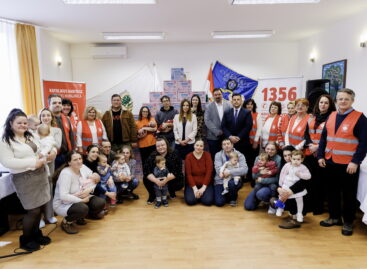According to the Seed Association, the proportion of metal-sealed eared seeds should be increased for the sake of varietal purity and crop safety
Due to the difficulties in growing corn, winter wheat, grown on about 1 million hectares, has become the number one arable crop in Hungary. According to the position of the Seed Association Interprofessional Organization and Product Council, the potential of cereal crops could be further exploited if producers chose metal-sealed seeds as much as possible.
 Starting this year, winter wheat, which is grown on 1 million hectares of Hungary’s approximately 5 million hectares of arable land, has overtaken corn as the number one crop.
Starting this year, winter wheat, which is grown on 1 million hectares of Hungary’s approximately 5 million hectares of arable land, has overtaken corn as the number one crop.
“It is of great economic interest to produce an excellent, uniform quality crop in this area, and for this it is extremely important for farmers to use metal-sealed seeds, which are currently lower than the European average, around 35-40 percent in Hungary. An important goal of the Seed Association Interprofessional Organization and Product Council is to increase this ratio to around 50 percent in the case of winter cereal crops, as this way producers can ensure uniform quality and reduce production risks. The use of metal-sealed seeds is a fundamental condition for successful and productive grain production: one of the most important advantages is genetic purity, which ensures the production of a uniform, varietal-identical and highly marketable commodity base.”
– emphasized Géza Takács, the president of the organization.
In the domestic seed sector, grain seed production takes place on 50 thousand hectares annually – mainly winter wheat, to a lesser extent rye, barley and triticale – and the seeds produced here are almost entirely sown domestically, on about 500 thousand hectares. The remaining area is replanted with seeds.
As Péter Perczel, Chairman of the Grain and Large-seeded Legume Section Committee of the Seed Association Interprofessional Organization and Product Council, explained: in contrast to replanted seeds, metal-sealed seeds are officially controlled, thus traceable and of guaranteed quality. The certification ensures that the seeds are free from physical contamination and pests, have adequate germination capacity and form a completely homogeneous batch. In addition, it is important that the origin of such seeds can be traced: in the event of a dispute, the distributor or the representative office is available.
Related news
Not a turnaround, but consolidation: an agricultural outlook for 2026
🎧 Hallgasd a cikket: Lejátszás Szünet Folytatás Leállítás Nyelv: Auto…
Read more >Variety trial: the best varieties received awards
🎧 Hallgasd a cikket: Lejátszás Szünet Folytatás Leállítás Nyelv: Auto…
Read more >Related news
dm’s Together for Babies program continues this year
🎧 Hallgasd a cikket: Lejátszás Szünet Folytatás Leállítás Nyelv: Auto…
Read more >








